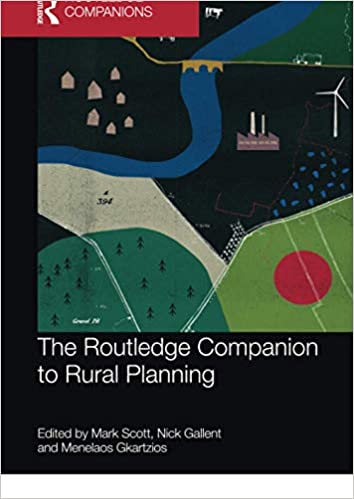
The Routledge Companion to Rural Planning provides a critical account and state of the art review of rural planning in the early years of the twenty-first century.
Looking across different international experiences – from Europe, North America and Australasia to the transition and emerging economies, including BRIC and former communist states – it aims to develop new conceptual propositions and theoretical insights, supported by detailed case studies and reviews of available data. The Companion gives coverage to emerging topics in the field and seeks to position rural planning in the broader context of global challenges: climate change, the loss of biodiversity, food and energy security, and low carbon futures. It also looks at old, established questions in new ways: at social and spatial justice, place shaping, economic development, and environmental and landscape management. Planning in the twenty-first century must grapple not only with the challenges presented by cities and urban concentration, but also grasp the opportunities – and understand the risks – arising from rural change and restructuring. Rural areas are diverse and dynamic. This Companion attempts to capture and analyse at least some of this diversity, fostering a dialogue on likely and possible rural futures between a global community of rural planning researchers.
Primarily intended for scholars and graduate students across a range of disciplines, such as planning, rural geography, rural sociology, agricultural studies, development studies, environmental studies and countryside management, this book will prove to be an invaluable and up-to-date resource.
De Routledge Companion to Rural Planning biedt een kritisch verslag en een state of the art overzicht van plattelandsplanning in de eerste jaren van de eenentwintigste eeuw.
Met een blik op verschillende internationale ervaringen – van Europa, Noord-Amerika en Australazië tot de overgangseconomieën en opkomende economieën, met inbegrip van de BRIC-landen en voormalige communistische staten – beoogt het nieuwe conceptuele stellingen en theoretische inzichten te ontwikkelen, ondersteund door gedetailleerde casestudies en overzichten van beschikbare gegevens. De Companion behandelt opkomende onderwerpen in het vakgebied en probeert plattelandsplanning in de bredere context van mondiale uitdagingen te plaatsen: klimaatverandering, het verlies aan biodiversiteit, voedsel- en energiezekerheid en een koolstofarme toekomst. Ook wordt op nieuwe manieren gekeken naar oude, gevestigde vraagstukken: sociale en ruimtelijke rechtvaardigheid, ruimtelijke ordening, economische ontwikkeling en milieu- en landschapsbeheer. Planning in de 21e eeuw moet niet alleen de uitdagingen van steden en stedelijke concentratie aanpakken, maar ook de kansen grijpen – en de risico’s begrijpen – die voortvloeien uit de verandering en herstructurering van het platteland. Plattelandsgebieden zijn divers en dynamisch. Deze Companion probeert tenminste een deel van deze diversiteit te vatten en te analyseren, en stimuleert een dialoog over waarschijnlijke en mogelijke toekomsten van het platteland tussen een wereldwijde gemeenschap van plattelandsplanningsonderzoekers.
Dit boek is in de eerste plaats bedoeld voor wetenschappers en promovendi uit verschillende disciplines, zoals planning, rurale geografie, rurale sociologie, landbouwstudies, ontwikkelingsstudies, milieustudies en plattelandsbeheer, en zal een onschatbare en actuele bron blijken te zijn.
Uitverkocht
Geef een reactie
Je moet ingelogd zijn op om een reactie te plaatsen.